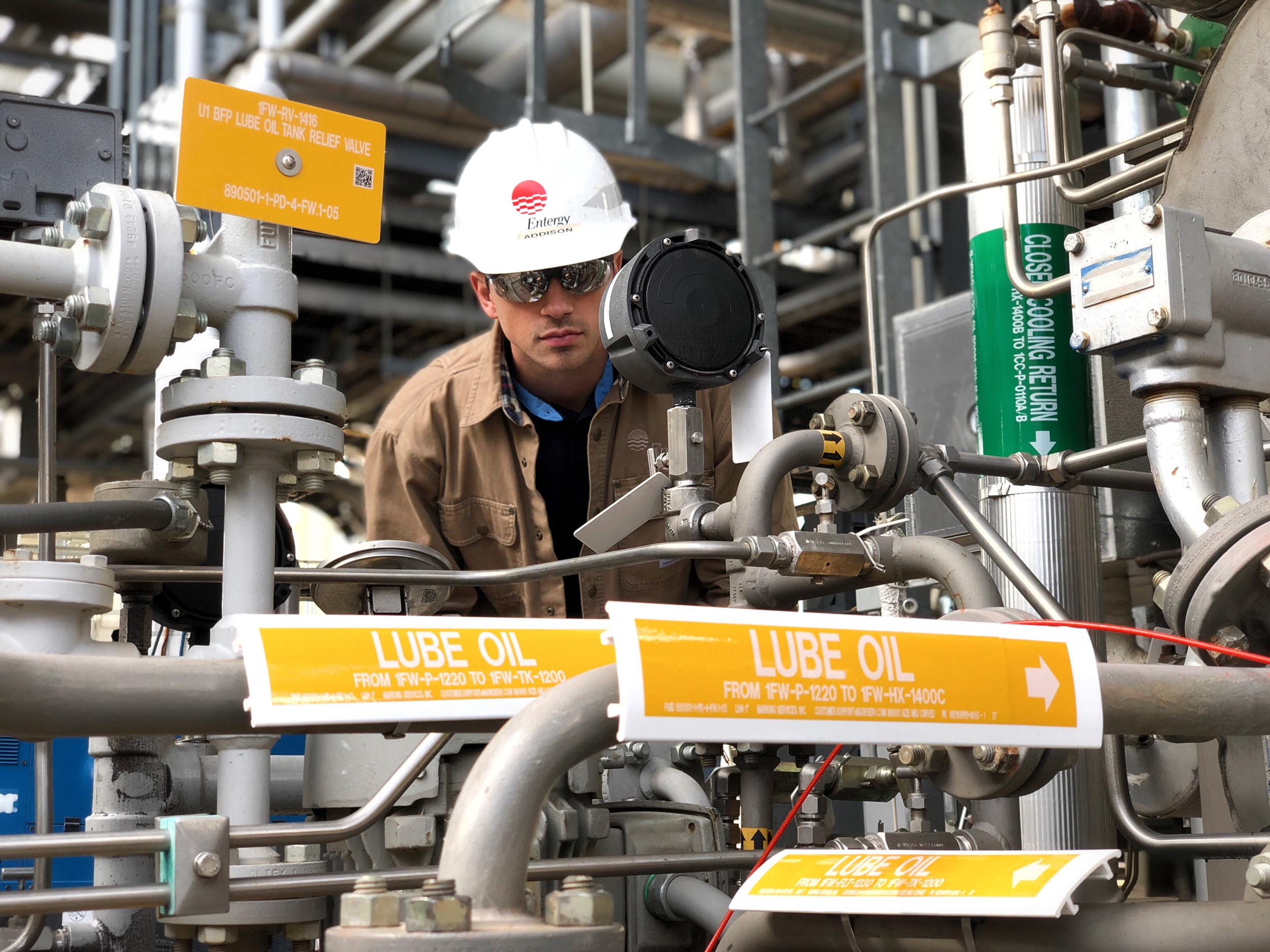
Industrial engineers work in the field of manufacturing technology, and are skilled professionals who help to improve production processes. They are responsible in developing new methods, analysing existing systems, and training workers on new policies. Their expertise makes them highly valued in consulting, engineering services and research and development.
Although they work in a variety of settings, industrial engineers focus on reducing waste, improving production processes, and reducing internal costs. These engineers combine creativity with logic to improve production processes. Some industrial engineers work with automated manufacturing processes.
The vast majority of industrial engineers have a solid background in mathematics, and other scientific principles. They also need to be skilled at problem-solving, critical thinking, and other scientific principles. They should also be able to communicate well and work with others. Industrial engineers should have the ability to view a large system and spot weaknesses and potential strengths.

A bachelor's degree in engineering is necessary to be able to work as an industrial engineer. After that, you will be eligible to apply for certification by the Society of Manufacturing Engineers. A master's degree allows you to specialize.
High-demand industrial engineers are in great demand. Over the next ten decades, their job opportunities are expected to grow more quickly than the national average. The employment rate for this professional is predicted to rise by 10%. Most of the work is performed on a full-time basis, but hours may vary depending on the project. The median salary for an industrial engineer in Nashville is $73,856. However, wage rates can differ from one employer to another depending on geographical location, employer, and individual qualifications.
If you are looking for an industrial engineering job, Nashville should be able to show off your professional and educational achievements. Also, you should take advantage of any industry-specific certifications. For example, if you're planning to work for a government agency, you may need a professional engineer license.
Many companies hire interns in order to help them understand the intricacies behind industrial engineering. Interns learn about lean manufacturing, value stream mapping, and kaizen. Depending on the company and your skills, you might be able move up in your career to a management role.

Whether you're working in a lab or an office, you'll need to develop interpersonal communication skills to work effectively with colleagues and managers. In addition to communicating with coworkers, you will also need to communicate well with customers and vendors.
A variety of industries are looking for skilled industrial engineers. These include transportation equipment manufacturers, computer and electronics manufacturers, and engineering service firms. Several colleges offer 5-year degree programs in industrial engineering. While many graduates are able to find entry-level positions in multiple industries, a few are more focused on certain specialty areas, such as automated manufacturing processes.
FAQ
What does warehouse mean?
Warehouses and storage facilities are where goods are kept before being sold. It can be an indoor space or an outdoor area. In some cases it could be both indoors and outdoors.
What is the job of a logistics manger?
Logistics managers are responsible for ensuring that all goods arrive in perfect condition and on time. This is done by using his/her experience and knowledge of the company's products. He/she must also ensure sufficient stock to meet the demand.
What does it mean to be a manufacturer?
Manufacturing Industries are those businesses that make products for sale. Consumers are the people who purchase these products. These companies use a variety processes such as distribution, retailing and management to accomplish their purpose. They produce goods from raw materials by using machines and other machinery. This covers all types of manufactured goods including clothing, food, building supplies and furniture, as well as electronics, tools, machinery, vehicles and pharmaceuticals.
What skills does a production planner need?
A production planner must be organized, flexible, and able multitask to succeed. Also, you must be able and willing to communicate with clients and coworkers.
Statistics
- According to a Statista study, U.S. businesses spent $1.63 trillion on logistics in 2019, moving goods from origin to end user through various supply chain network segments. (netsuite.com)
- You can multiply the result by 100 to get the total percent of monthly overhead. (investopedia.com)
- [54][55] These are the top 50 countries by the total value of manufacturing output in US dollars for its noted year according to World Bank.[56] (en.wikipedia.org)
- Many factories witnessed a 30% increase in output due to the shift to electric motors. (en.wikipedia.org)
- Job #1 is delivering the ordered product according to specifications: color, size, brand, and quantity. (netsuite.com)
External Links
How To
How to use Lean Manufacturing in the production of goods
Lean manufacturing is an approach to management that aims for efficiency and waste reduction. It was first developed in Japan in the 1970s/80s by Taiichi Ahno, who was awarded the Toyota Production System (TPS), award from KanjiToyoda, the founder of TPS. Michael L. Watkins published the book "The Machine That Changed the World", which was the first to be published about lean manufacturing.
Lean manufacturing can be described as a set or principles that are used to improve quality, speed and cost of products or services. It emphasizes the elimination of defects and waste throughout the value stream. Lean manufacturing can be described as just-in–time (JIT), total productive maintenance, zero defect (TPM), or even 5S. Lean manufacturing is about eliminating activities that do not add value, such as inspection, rework, and waiting.
In addition to improving product quality and reducing costs, lean manufacturing helps companies achieve their goals faster and reduces employee turnover. Lean manufacturing can be used to manage all aspects of the value chain. Customers, suppliers, distributors, retailers and employees are all included. Lean manufacturing practices are widespread in many industries. Toyota's philosophy, for example, is what has enabled it to be successful in electronics, automobiles, medical devices, healthcare and chemical engineering as well as paper and food.
Five fundamental principles underlie lean manufacturing.
-
Define Value- Identify the added value your company brings to society. What makes you stand out from your competitors?
-
Reduce waste - Get rid of any activity that does not add value to the supply chain.
-
Create Flow – Ensure that work flows smoothly throughout the process.
-
Standardize and Simplify – Make processes as consistent, repeatable, and as simple as possible.
-
Build Relationships- Develop personal relationships with both internal as well as external stakeholders.
Lean manufacturing is not a new concept, but it has been gaining popularity over the last few years due to a renewed interest in the economy following the global financial crisis of 2008. Many businesses have adopted lean production techniques to make them more competitive. Economists think that lean manufacturing is a crucial factor in economic recovery.
Lean manufacturing, which has many benefits, is now a standard practice in the automotive industry. These include higher customer satisfaction, lower inventory levels, lower operating expenses, greater productivity, and improved overall safety.
The principles of lean manufacturing can be applied in almost any area of an organization. Lean manufacturing is most useful in the production sector of an organisation because it ensures that each step in the value-chain is efficient and productive.
There are three main types:
-
Just-in Time Manufacturing: This lean manufacturing method is commonly called "pull systems." JIT refers to a system in which components are assembled at the point of use instead of being produced ahead of time. This approach reduces lead time, increases availability and reduces inventory.
-
Zero Defects Manufacturing (ZDM),: ZDM is a system that ensures no defective units are left the manufacturing facility. If a part is required to be repaired on the assembly line, it should not be scrapped. This is also true for finished products that require minor repairs before shipping.
-
Continuous Improvement (CI: Continuous improvement aims to increase the efficiency of operations by constantly identifying and making improvements to reduce or eliminate waste. Continuous improvement involves continuous improvement of processes and people as well as tools.